people
Senior Committee |
|
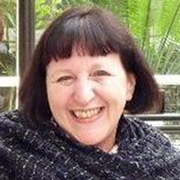 |
Regina Pekelmann Markus is a professor and head of the Laboratory of Chronopharmacology at the department of physiology of the University of São Paulo's Institute of Biosciences. She received her Ph.D. in pharmacology in 1974 from the former Paulista Medicine School - today Federal University of São Paulo. Markus held several posts in Scientific Societies and in the government – National Secretary for Politics and Research and Development Programs at the Ministry of Science and Technology (2003), member of the Council and several positions in the Brazilian Society for Advancement of Science (SBPC), and the Brazilian Society for Pharmacology and Experimental Therapeutics (SBFTE), where she served as President (2006-2007). Markus is a member of the Brazilian Academy of Science (ABC) and executive director of the Academy of Science of São Paulo State (ACIESP, 2012-2015). In the last ten years she has looked for the molecular and cellular basis for a cross talk between the circadian system and innate immune response. This research has also been directed to the organismic level leading to the theory of the Immune-Pineal Axis. |
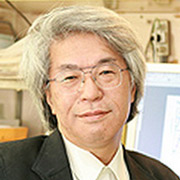 |
Takao Kondo is a professor of biological science at Nagoya University in Nagoya, Japan. He is known for being the first to reconstitute the circadian clock in vitro. Kondo received his B.S. in 1970 and his Ph.D. in Biology in 1977 from Nagoya University. He was appointed as an assistant professor at the National Institute for Basic Biology in Okazaki in 1978, and returned to Nagoya University as a professor at the Graduate School of Science in 1995. He discovered a gene cluster Kai ABC as a circadian feedback process in cyanobacteria in 1998, before he succeeded in reconstituting the circadian oscillation of cyanobacterial Kai C phosphorylation in vitro in 2005. |
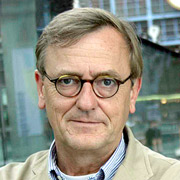 |
Till Roenneberg is a professor of chronobiology at the Institute of Medical Psychology at Ludwig-Maximilians University (LMU) in München, Germany. He explores the impact of light on human circadian rhythms, focusing on aspects such as chronotypes and social jet lag in relation to health benefits. Roenneberg attended both the University College London and LMU, where he began by studying physics. He switched to medicine in order to focus on the science of the human body, but ended up studying biology. As a postdoctoral fellow, he studied again under Jurgen Aschoff, studying annual rhythms in the body, then moved to the United States to study the cellular basis of biological clocks under Woody Hastings at Harvard University. In 1991, he began the tradition of giving the Aschoff’s Ruler prize to a chronobiologist who has advanced the field. He is currently the vice-chair of the Institute for Medical Psychology of the Ludwig Maximilian University of Munich, the head of the Centre for Chronobiology, the president-elect of the European Biological Rhythms Society, the president of the World Federation of Societies for Chronobiology, and a member of the Senior Common Room of Brasenose College, University of Oxford. From 2005 to 2010 he was the coordinator of "EUCLOCK" and coordinator of the Daimler-Benz-Foundation network "ClockWORK", and from 2010 to 2012 was the member at large of the Society for Research of Biological Rhythms. |
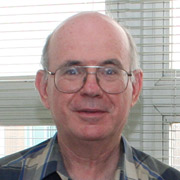 |
Eliezer Rabinovici is a professor for Particle Physics at the Hebrew University in Jerusalem, where he holds the Leon H. and Ada G. Miller Chair of Science. He is also a former chairman of the Racah Institute of Physics and has chaired numerous committees in the past, including Professors Union and gender equality at the same institution. |
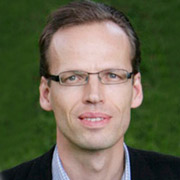 |
Sami Pihlström received his PhD from the University of Helsinki, Finland, in 1996. He was, in 2006-2014, Professor of Practical Philosophy at the University of Jyväskylä, Finland, and is, since 2014, Professor of Philosophy of Religion at the University of Helsinki. He is currently the Director of the Helsinki Collegium for Advanced Studies (2009-2015). His research interests focus on pragmatism, the problem of realism, metaphysics, ethics, transcendental philosophy, and philosophy of religion. He has published widely on these and related topics; his most recent monographs include Pragmatist Metaphysics: An Essay on the Ethical Grounds of Ontology (Continuum/Bloomsbury, 2009), Transcendental Guilt: Reflections on Ethical Finitude (Lexington Books, 2011), Pragmatic Pluralism and the Problem of God (Fordham UP, 2013), and Taking Evil Seriously (Palgrave Pivot, forthcoming 2014). He is also the editor of The Continuum Companion to Pragmatism (Continuum/Bloomsbury, 2011) and a co-editor (with Henrik Rydenfelt) of William James on Religion (Palgrave, 2013). |
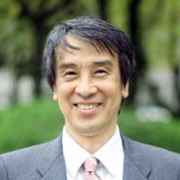 |
Takaho Ando is the Director of the IAR-Nagoya and a Professor for Doctrinal History of Economics and History of Thought at the Graduate School of Economics of the University of Nagoya. Winner of the Japan Academy Prize for his work on Liberalism economic thought in France. Area of Interest: History of Social Thoughts of Public Sphere and New Social Philosophy. |
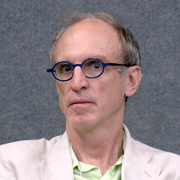 |
Martin Grossmann was the director of Centro Cultural São Paulo from August 2006 to May 2010 and deputy director of USP’s Museum of Contemporary Art (MAC) from 1998 to 2002. He is the creator and coordinator of ‘Fórum Permanente: Between Public and Private’, a mediation and cultural action platform. He has a degree in Fine Arts from Fundação Armando Alvares Penteado (FAAP). Grossmann holds a Masters from USP’s School of Communication and Arts (ECA) and a PhD from the University of Liverpool. He is the creator and coordinator of the first USP website (USP Online), which aired from March 1995 to July 1998. Grossmann's research discusses the transition of material culture to a culture in virtuality, the relationship between contemporary art, its agents and institutions, the processes of artistic and cultural mediation and the development and maintenance of information systems for art and culture. His role as manager of cultural institutions and projects is based on research and studies done on curation, action, mediation and cultural policy, museology, criticism, theory and history of art and architecture, and history of ideas. |
